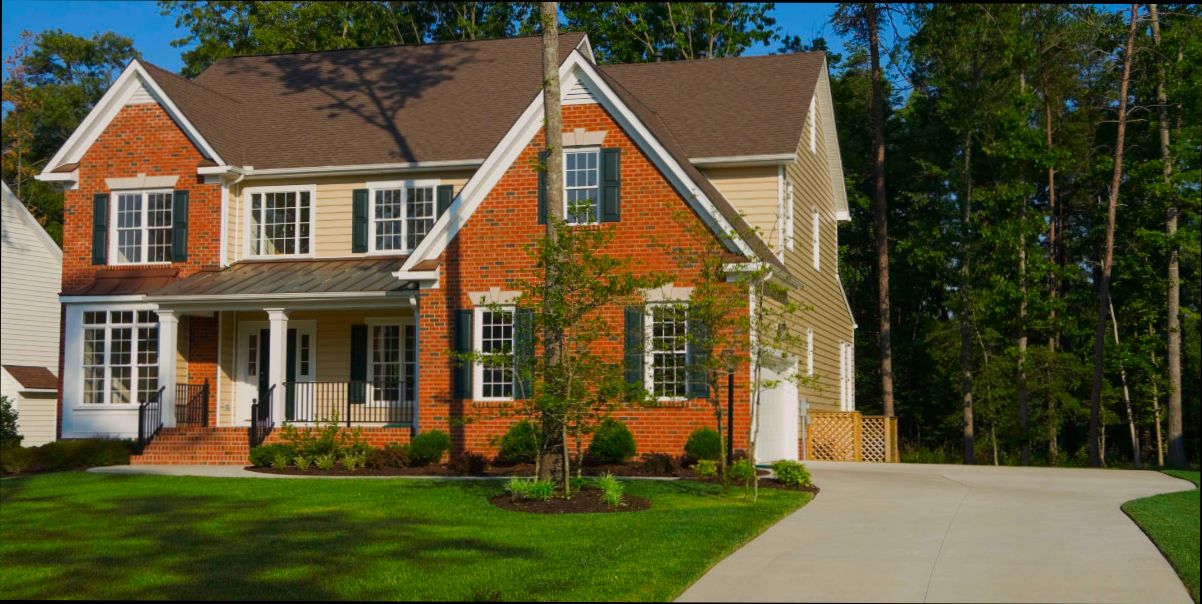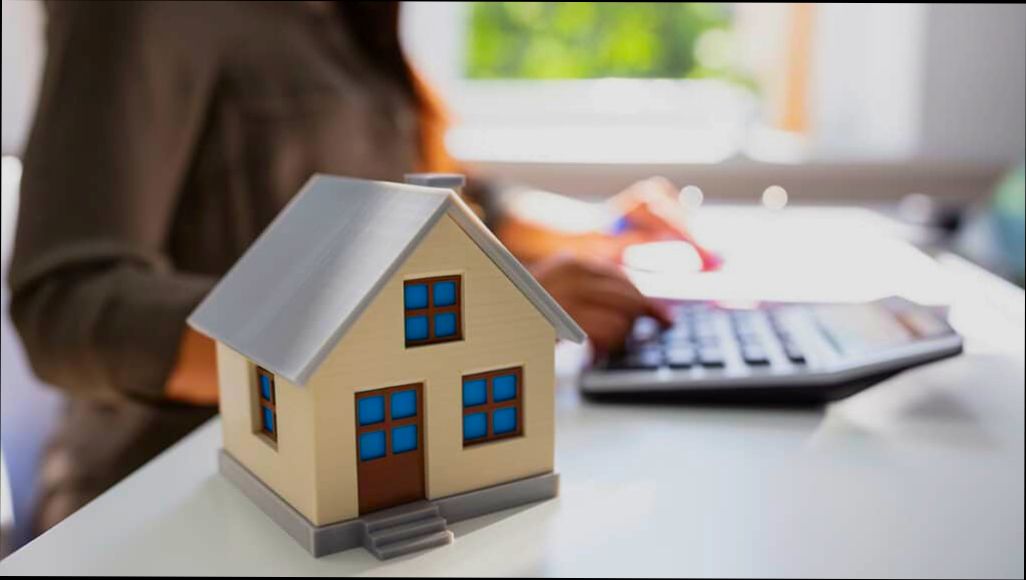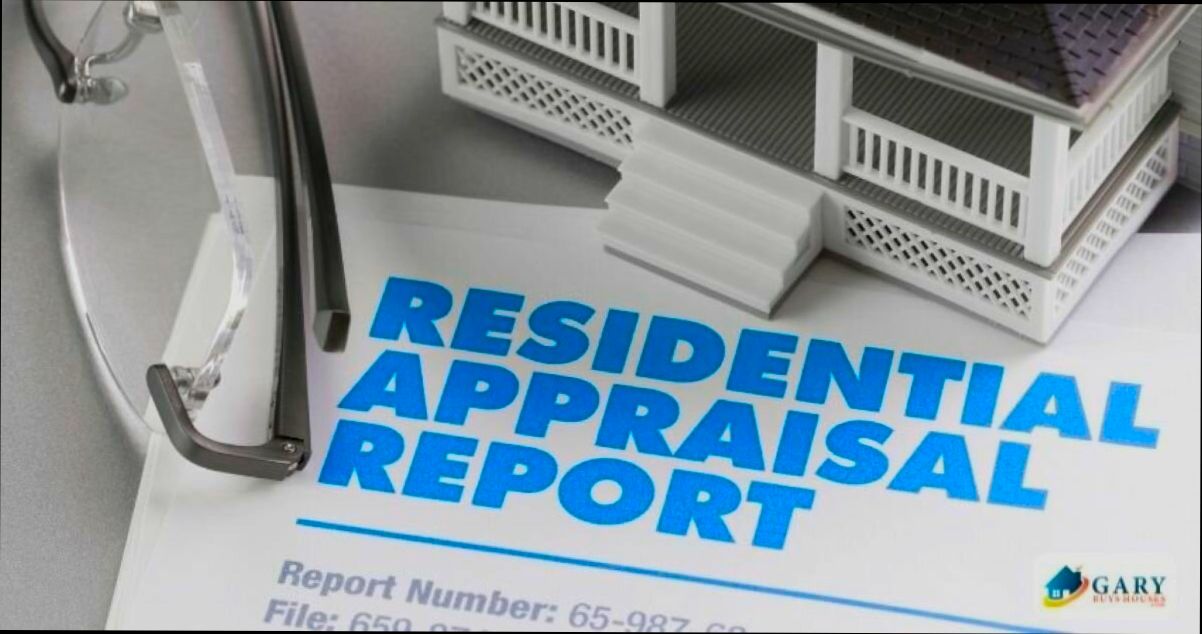What hurts a home appraisal can feel like a mystery to many homeowners. Picture this: you’ve invested time and money into your property, maybe even renovated a bathroom or upgraded the kitchen. Yet, when the appraiser strolls through, they might overlook those shiny new tiles because your roof is showing significant wear. In fact, a study by Fannie Mae revealed that properties with poor first impressions can lose up to 10% of their appraised value right off the bat. Little things matter, too. If your basement is cluttered or the yard resembles a jungle, appraisers might question how well you’ve maintained the home overall.
Neighborhood factors play a big role, too. Did you know that homes on busy streets can appraise significantly lower—up to 20% less—than those on quiet cul-de-sacs? That’s real money lost just because of location. And if your neighbors’ houses are in disrepair, it can drag down your appraisal value, even if your property looks great. So, while you might feel proud of your home, a few overlooked details and external influences can pack a hefty punch when the appraisal report comes in.

Impact of Neighborhood Conditions
When it comes to home appraisals, neighborhood conditions play a significant role in determining property value. The characteristics of the surrounding area not only affect the perceived desirability of a home but also influence the appraiser’s calculations directly. Let’s unpack how these neighborhood conditions can impact your home appraisal.
Key Factors Contributing to Neighborhood Conditions
1. Type of Neighborhood:
- Urban, suburban, or rural neighborhoods each have distinct characteristics that can affect home values. Urban areas, often characterized by higher demand, can drive up appraisals. Conversely, rural locations may not yield the same values due to decreased demand.
2. Housing Market Trends:
- The broader housing market bears considerable weight on an appraisal. In a seller’s market, where demand exceeds supply, home values can surge, impacting appraisals positively. According to recent trends, neighborhoods experiencing significant growth saw appraisal values increase by up to 15%.
3. Curb Appeal:
- The aesthetic condition of the neighborhood affects how the appraiser views your home. A lack of curb appeal not only applies to your property but also to the entire street. Homes in neighborhoods with well-maintained lawns and vibrant landscaping generally appraise higher. Simple enhancements like mowing the lawn or planting flowers have been shown to improve neighborhood perceptions.
4. Environmental Hazards:
- Areas at risk for natural disasters or environmental hazards can severely impact home values. For instance, properties located near flood zones or industrial areas may suffer from lower appraisal values.
5. Zoning Changes:
- Changes in zoning laws that alter neighborhood dynamics, such as transitioning from residential to commercial, can affect property values. An appraisal might reflect this transformation negatively, potentially decreasing the home’s value.
Comparative Table of Neighborhood Impact on Appraisals
| Neighborhood Characteristic | Impact on Appraisal | Example |
|---|---|---|
| Urban vs. Rural | Higher values in urban areas due to demand | Urban area houses appraise 10-20% higher |
| Housing Market Trends | Values may increase up to 15% in booming markets | Neighborhoods with new developments show sharp increases |
| Curb Appeal | Poor appearance lowers appraisal | Homes in well-kept areas sell for 5-10% more |
| Environmental Hazards | Significant reduction in value | Properties near industrial sites appraise lower due to risk |
| Zoning Changes | Potential decrease in value | Residential homes near new commercial zones see appraisal drops |
Real-World Examples
Consider a suburban neighborhood that recently undertook revitalization initiatives. Homes in this area experienced an average 10% increase in appraisal values post-renovation due to enhanced market appeal and improved infrastructure. Another example includes a rural area experiencing an influx of new businesses; here, homes saw significant boosts in appraisal value, reflecting the growing demand and transformed neighborhood dynamics.
Practical Implications for Homeowners
Understanding neighborhood conditions is essential when preparing for an appraisal. You can enhance your property’s appraisal potential by:
- Investing in yard maintenance: Simple landscaping changes can improve curb appeal significantly.
- Being aware of market trends: Staying informed about local real estate movements can help you understand how neighborhood changes may affect your appraisal.
- Assessing neighborhood hazards: Knowing if your area has issues like flooding can help you take preventive measures to improve your property’s perceived safety.
Actionable Advice
To maximize your home appraisal, keep an eye on the types of developments occurring in your neighborhood, maintain your property’s exterior, and work with local real estate experts to understand how your neighborhood conditions can be positively impacted. Enhancements to the overall aesthetic and awareness of environmental risks can make a noticeable difference in appraisal outcomes.

How Curb Appeal Affects Value
Curb appeal is a vital element that can significantly influence your home’s value. It serves as the first impression potential buyers will have, profoundly affecting their perception and willingness to make an offer. Research shows that improving curb appeal can elevate your property’s value by as much as 7 percent, especially in slower seller markets, making it an essential focus for homeowners looking to sell.
Key Points About Curb Appeal and Value
- A well-maintained exterior signals that the home has been cared for and makes it inviting to potential buyers. This emotional connection can translate directly to an increased offer price.
- Homebuyers are likely to extend their shopping expectations based on what they see from the street. If your home’s exterior looks neglected, buyers may offer lowball pricing, particularly if competing homes have more attractive exteriors.
- According to a study, properties with poor curb appeal may linger on the market longer, giving buyers leverage to negotiate down the price. This can lead to homeowners losing thousands simply due to the first impression.
- A high-quality exterior that includes modern materials and a fresh look can attract buyers from different demographics, appealing more broadly and thus raising the market value more than a typical design.
| Curb Appeal Improvement | Potential Value Increase |
|---|---|
| Fresh Landscaping | 5% - 7% |
| New Siding | 10% - 15% |
| Exterior Paint | 3% - 5% |
| Updated Windows | 8% - 12% |
Real-World Examples
In one real estate study, a home in Seattle saw a 12% increase in valuation after the owner installed modern siding and enhanced the landscaping with colorful flowers and bushes. The perceived value soared not just from the exterior upgrades but also because bids came in higher than comparable homes with less attention to curb appeal.
Another case involved a homeowner in Montecito, California, who invested in a simple refresh of their front yard by clearing away overgrown plants and adding decorative stones. The home sold for 10% more than other similar homes nearby that had not made such updates, demonstrating the significant financial impact of curb appeal.
Practical Implications
To effectively boost your property value through curb appeal, consider focusing on both aesthetics and maintenance. Small investments like landscaping, pressure washing, and a fresh coat of paint can yield high returns.
Here are some actionable steps you can take:
- Regularly trim trees and edges while removing dead or overgrown plants.
- Refresh your garden beds with seasonal flowers or colorful mulch.
- Upgrade your front door with a stylish design that gives a welcoming feel.
- Ensure that outdoor lighting is functional and aesthetically pleasing.
By being proactive and considering these insights, you can significantly enhance your home’s value through effective curb appeal strategies.

Statistical Trends in Home Appraisals
Understanding statistical trends in home appraisals can provide valuable insights into what influences property values. By analyzing recent data, we can identify patterns that may significantly affect the outcome of an appraisal.
Key Trends in Home Appraisal Statistics
- Market Fluctuations: A study revealed that home appraisals tend to decrease by approximately 8% during economic downturns. This statistic underscores the impact of broader economic factors on property values.
- Time on Market: Homes that remain unsold for over 90 days may experience a reduction in appraised value by up to 12%. This trend suggests that prolonged market presence can raise red flags for appraisers regarding property desirability.
- Appraisal Gaps: In competitive markets, properties may appraise for about 6% less than the agreed-upon sales price, especially when multiple offers exist. This gap highlights the importance of realistic pricing strategies.
- Renovation Effects: Homes with recent renovations report an average increase in appraisal value of 15%. Specifically, kitchens and bathrooms tend to have the most significant impact on appraisal results.
| Trend Category | Statistical Impact |
|---|---|
| Economic Downturns | 8% decrease in home appraisal values |
| Prolonged Time on Market | Up to 12% reduction in appraised value |
| Appraisal Gaps in Competitive Markets | 6% less than the sales price |
| Renovations | Average 15% increase in appraisal value |
Real-World Examples
In a recent case study in Austin, Texas, a home stayed on the market for over 120 days and saw its appraisal value drop by approximately $20,000 compared to initial expectations. Conversely, a home in Seattle underwent a kitchen renovation, resulting in a 20% increase in appraisal value, demonstrating the direct correlation between specific upgrades and appraisal outcomes.
Practical Implications for Homeowners
Understanding these statistical trends can empower you in the real estate market. Timing your sale during a strong economic period can enhance your home’s appraised value. Additionally, consider making strategic renovations before an appraisal, focusing on high-impact areas like kitchens or bathrooms, to maximize potential increases.
- Ensure you have realistic expectations regarding appraisal outcomes based on market conditions.
- If your home has been on the market for an extended period, be prepared for possible dips in appraisal value.
- Regularly monitor neighborhood trends and economic indicators to effectively gauge timing for property sales.
By staying informed about these statistical trends, you can make more educated decisions regarding home appraisals and potentially increase your property’s value.

Real-World Examples of Low Appraisals
When you receive a low appraisal, it can be disheartening, especially when you’re convinced your home is worth more. In this section, we’ll explore real-world examples of low appraisals, citing specific instances that highlight what can influence these valuations. Understanding these examples helps you navigate your own appraisal process with insight.
Key Factors Influencing Low Appraisals
Several identifiable elements can lead to low appraisals. Here are a few key considerations that have emerged from various real-world situations:
- Market Comparisons: If recently sold homes in your area had lower sale prices, this can significantly impact your appraisal.
- Condition Discrepancies: Homes that show signs of neglect or disrepair may receive lower valuations.
- Zoning Issues: Properties facing zoning restrictions or located in less desirable zones can lead to a decrease in appraised value.
Comparative Table: Impact of Various Factors on Appraisals
| Factor | Influence on Appraised Value | Example from Market Research |
|---|---|---|
| Recent Sales Prices | -10% to -20% | Home appraised at $300K when nearby sales averaged $240K. |
| Condition | -5% to -15% | A home with outdated systems appraised at $280K against $330K expectation. |
| Zoning Restrictions | -5% to -10% | Home with zoning complications appraised at $350K instead of expected $385K. |
Real-World Examples
1. Market Comparisons: Consider a three-bedroom home appraised at $310,000. The appraisal was based on recent sales in a similar neighborhood, where comparable homes sold for between $290,000 and $300,000. Even though the homeowner felt the location and upgrades warranted a higher price, the appraiser noted that the local market supported a $300,000 valuation.
2. Condition Discrepancies: In another instance, a two-story home was expected to appraise for $400,000 due to its prime location. However, the appraisal came in at $375,000 due to outdated plumbing and an aging roof. The appraiser specifically cited these issues as detracting from the overall value.
3. Zoning Issues: A property located near a commercial district was anticipated to be appraised at $500,000 because of its size and location. However, it faced restrictions due to zoning laws that limited its use for residential purposes, bringing the appraisal down to $475,000.
Practical Implications for Homeowners
If you are facing a low appraisal, consider taking proactive steps to enhance your property’s value:
- Update Necessary Repairs: Fix any evident repair issues to create a better impression.
- Review Recent Sales: Research sales in your area to ensure your expectations align with market trends.
- Consult Professionals: Engage with a real estate agent or appraiser prior to listing your home to gain insight into potential valuation outcomes.
Understanding the real-world scenarios that lead to low appraisals equips you with knowledge to avoid unexpected disappointments. By acknowledging market conditions and property status, you can work towards maximizing your home’s appraised value.

Common Property Flaws and Their Consequences
When assessing the condition of a home, certain property flaws can significantly diminish its value and overall appeal during an appraisal. Understanding these flaws and their potential consequences can help you avoid costly surprises down the line.
Key Property Flaws Impacting Appraisals
1. Inadequate Structural Support: Homes with poorly designed structural elements, such as beams and columns, may suffer from stability issues. This can result in expensive repairs and even safety hazards, significantly lowering appraised value.
2. Improper Drainage: A flawed drainage system can lead to water accumulation, which can cause severe water damage and mold growth. Such conditions can decrease a property’s value by as much as 15% due to potential health risks and necessary remediation efforts.
3. Defective Roofing Materials: Using poor-quality roofing materials can result in leaks and water damage. A roof that prematurely deteriorates can cost homeowners thousands to replace, impacting the home’s appraisal negatively.
Comparative Impact of Common Property Flaws
| Property Flaw | Potential Appraisal Impact | Long-term Consequences |
|---|---|---|
| Inadequate Structural Support | 20% decrease | Potential for collapse |
| Improper Drainage | 15% decrease | Mold growth and foundation damage |
| Defective Roofing Materials | 10% decrease | Increased repair costs |
| Faulty Plumbing Materials | 12% decrease | Risk of water damage and health hazards |
| Cracks in Walls/Foundations | 25% decrease | Compromised structural integrity |
Real-World Examples
- Inadequate Structural Support: In a recent appraisal case, a home with improperly installed beams was given a 20% lower appraisal due to the risk of collapse. The homeowner had to invest in a structural engineer to assess and resolve the issue before putting the home on the market.
- Improper Drainage: A property faced a 15% decrease in appraisal value due to water accumulation in the basement from incorrect grading and drainage system flaws. The subsequent mold remediation process cost the owner thousands, underscoring the importance of ensuring proper drainage.
- Defective Roofing Materials: A homeowner discovered that their roof, made of inferior asphalt shingles, leaked significantly during the rainy season. This led to extensive interior damage, resulting in a 10% drop in the home’s appraisal. The repair costs not only included a new roof but also damaged ceilings and walls.
Practical Implications for Homeowners
Being proactive about addressing common property flaws can prevent decreased value during appraisals. Here are some actionable insights:
- Get Regular Inspections: Schedule routine inspections that focus on crucial structural elements and systems to identify issues before they become significant problems.
- Invest in Repairs: Prioritize repairs for structural support and drainage systems; these investments not only maintain safety but also preserve property value.
- Use Quality Materials: When upgrading or maintaining your home, opt for high-quality materials. The initial cost can save you money in the long run by avoiding the need for frequent repairs.
Specific Facts and Advice
Regular maintenance can mitigate the risks associated with common property flaws. For instance, addressing minor cracks in walls early on can prevent them from becoming major structural issues later, potentially saving 25% in appraisal value. Always document repairs and improvements to provide evidence during an appraisal, demonstrating how the home has been maintained and enhanced.

Benefits of Proper Home Maintenance
Taking care of your home isn’t just about keeping it looking good; it’s also a crucial factor in preserving and enhancing its value. Proper home maintenance not only prevents costly repairs but can also significantly impact your home’s appraised value. By focusing on essential upkeep, you can ensure that your investment appreciates over time.
Increased Resale Value
Investing in regular maintenance can lead to impressive returns when it comes time to sell. For example, installing a deck can yield a return of 40% to 50% of your investment. This means that if you invest $10,000 in a new deck, you can expect an increase of $4,000 to $5,000 in your home’s appraisal.
Improved Livability
A well-maintained home is more comfortable and enjoyable to live in. Addressing small problems before they become major issues can save you money and stress in the long run. For instance, fixing a leaky roof not only protects your interior but also prevents mold growth, which can be detrimental to health and can lead to a decrease in property value if not managed promptly.
Better Energy Efficiency
Regular maintenance, such as checking for insulation integrity or maintaining heating and cooling systems, can improve your home’s energy efficiency. When energy bills decrease, not only does it save you money, but it also makes your home more appealing to buyers, as they are often looking for energy-efficient features. Homes that are energy-efficient can sell for about 10% more than similar homes that aren’t as efficient.
Key Maintenance Considerations
Here are some essential aspects of home maintenance that can contribute significantly to preserving value:
- Regular Roof Inspections: Preventing leaks and ensuring durability can save you money on repairs and keep your home’s value high.
- Updating Appliances: New appliances can significantly add to the value of your home, particularly if they are energy-efficient models.
- Landscaping: Well-maintained outdoor spaces can increase property value by up to 7%.
| Maintenance Task | Potential Value Increase | Cost to Implement |
|---|---|---|
| Deck Installation | 40% - 50% | $10,000 |
| Energy-Efficient Appliances | 10% | $5,000 - $15,000 |
| Roof Repairs | 15% | $3,000 - $10,000 |
| Landscaping Improvements | 7% | $1,000 - $5,000 |
Real-World Examples
Let’s consider a homeowner who regularly maintains their HVAC system. By keeping it clean and running efficiently, they enjoyed a reduction in utility bills averaging $1,200 annually. Additionally, when it came time to sell, the home’s energy efficiency was highlighted to prospective buyers, resulting in an increase of approximately 10% in the final sale price.
Another example is a couple who focused on their home’s exterior look with fresh landscaping and repairs to a chipped exterior wall. These improvements not only resulted in an increase in potential buyer interest but also an estimated boost of around 7% in their home’s value.
Practical Implications
For you as a homeowner, focusing on proper maintenance could mean not just saving for repairs, but also making strategic upgrades that pay off in the long run. Creating a maintenance schedule for your home can help you stay on top of essential repairs. This proactive approach can decrease the chances of significant repair costs later and increase your home’s perceived value during an appraisal.
You should consider investing in regular, preventive maintenance tasks such as:
- Scheduling seasonal maintenance for HVAC systems.
- Checking for water leaks and dampness in basements or crawl spaces.
- Trimming trees and bushes to avoid damage to your home.
By being proactive with your home’s maintenance, you can enjoy a comfortable living space while ensuring that your property’s value continues to appreciate.

Market Fluctuations and Appraisal Risks
Market fluctuations can heavily influence home appraisals, often leading to unexpected valuation outcomes. Understanding these dynamics is vital not only for homeowners but also for potential buyers, sellers, and real estate professionals alike. When the housing market experiences volatility, it introduces distinct risks that can directly affect appraisal outcomes.
One significant aspect to consider is that home values can shift dramatically in response to economic changes or trends. For instance, during periods of increased demand and reduced inventory, appraisers may face challenges in keeping valuations aligned with actual market sales. Here are some important risks associated with market fluctuations:
Key Risks to Consider
- Rapid Market Changes: If the market heats up quickly, recent comparable sales used for appraisals may not reflect the current high prices, leading to undervaluation.
- Economic Indicators: A rise in interest rates or indicators pointing towards a recession can lead to decreased buyer confidence, impacting property values and risk profiles during appraisals.
- Supply and Demand Dynamics: In a market where supply is far below demand, buyers may bid above appraised values. This scenario creates a disparity that can leave lenders questioning the appraisal’s validity.
Here’s a breakdown of market fluctuation scenarios versus their potential impact on appraisal values:
| Market Condition | Appraisal Impact | Risk Level |
|---|---|---|
| Strong Seller’s Market | Potential underappraisal | Moderate to High |
| Economic Downturn | Decrease in appraisal value (up to 10%) | High |
| Increased Inventory | Likely overvaluation risk | Moderate |
| National Market Decline | Appraised value could drop 8%-15% | High |
Real-World Examples
Consider a case in a city experiencing a rapid influx of tech jobs. Homes that previously appraised at $300,000 suddenly become sought after due to an influx of buyers willing to pay $350,000 or more. Despite the increased buyer interest, appraisals based on older comparative sales may still reflect the earlier value, creating appraisal gaps.
On the flip side, during an economic downturn, appraisal values for homes can drop significantly. For example, in a suburb where homes appraised at $450,000 last year may see values as low as $405,000 this year due to economic conditions, a reduction of up to 10%. Such drops can limit sellers’ options when refinancing or selling their homes.
Practical Implications for You
When facing market fluctuations, consider the following actionable strategies:
- Monitor Local Trends: Stay informed about local market conditions. Use online resources or consult with real estate professionals to understand prevailing trends that could influence home values.
- Provide Current Comparables: If you’re selling or refinancing, gather recent sale data and be prepared to present these to the appraiser to support your home’s value.
- Maintain Home Condition: Even in fluctuating markets, ensuring your home is in excellent condition can help mitigate risks associated with appraisals and ensure a favorable outcome.
- Timing Matters: If you’re considering selling or refinancing, assess whether current market conditions favor higher demand, potentially leading to better appraisal results.
By proactively addressing the complexities of market fluctuations, you enhance your chances of achieving a favorable appraisal outcome, despite the inherent risks involved.





